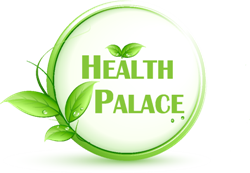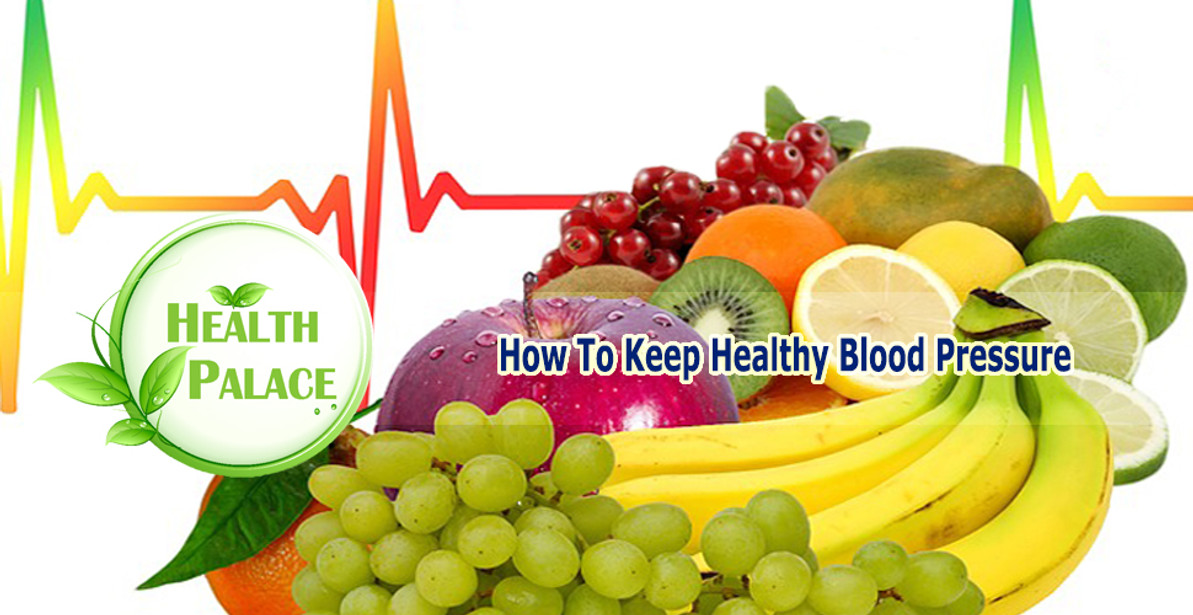Best Supplements for Blood Pressure | How to Lower Blood Pressure Naturally?
How To Keep Healthy Blood Pressure
Blood is carried by the arteries from the heart throughout the body. Blood pressure is the measure of how hard the blood is pushing against the inside of the arteries. Although a certain amount of pressure is needed to carry blood through the body, if that pressure is too high, it causes a health condition known as high blood pressure, or hypertension. Hypertension is one of the main risk factors for heart disease, stroke, and kidney failure. In Canada, it has been estimated that 6 million adults have high blood pressure. Many are not aware of the problem. Approximately one-third of people with hypertension do not receive adequate treatment to control their blood pressure.
How The Blood Pressure Is Measured?
The blood pressure reading is based on two measures called systolic and diastolic. The systolic (top) number is the measure of the pressure force when your heart contracts and pushes out the blood. The diastolic (low) number is the measure of when your heart relaxes between beats.
Blood pressure is always recorded as the systolic number over the diastolic number, and the numbers indicate pressure as measured in mm Hg. There are three categories for blood pressure; Low risk: 120 / 80, Medium risk: 121-139 / 80 - 89, and High risk: 140+ / 90. However there are a few exceptions to this, for example, for diabetics the numbers should be kept less than 130 / 80.
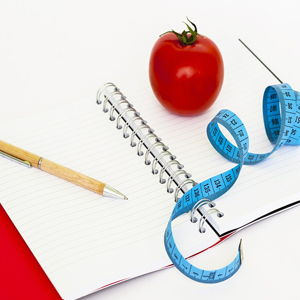
What Are The Main Causes of High Blood Pressure?
Primary (or essential) hypertension is when the cause is unknown, which also constitutes the majority of the cases of hypertension. When there is an underlying problem such as kidney disease or hormonal disorders that can cause hypertension, it is called secondary hypertension. When it is possible to correct the underlying cause, high blood pressure usually improves and may even return to normal.
Other factors can also contribute to high blood pressure including; age (blood pressure usually increases with age), diet (high Sodium, high cholesterol), excessive alcohol consumption, lack of exercise, obesity, sleep disorders, and stress.
What Are The Symptoms & Complications of The High Blood Pressure?
High Blood pressure can occasionally cause headaches, vision problems, dizziness, or shortness of breath, but in most people hypertension does not show any symptom. This is why hypertension is referred to as the "silent killer." Hypertension is usually detected at a regular medical visits.
Statistical analysis suggests that cardiovascular disease risk doubles for each of 20 mm Hg systolic and 10 mm Hg diastolic increase above 115/75 mm Hg. These findings become even more concerning due to the fact that half of adults worldwide have blood pressure levels ranging from 120/80 to 139/89 mm Hg. Data suggests that blood pressure in this range is linked to a nearly 20% increased risk of declining kidney function; this correlation is greater in older individuals.
How Diet & lifestyle Can Help To Improve High Blood Pressure?
The Dietary Approaches to Stop Hypertension is referred to as DASH diet. DASH recommends high intake of fruits, vegetables, nuts, and low-fat dairy products, and prefers fish and chicken over red meat. DASH is low in saturated fat, triglycerides, cholesterol, sugar, refined carbohydrates, and it restricts sodium and alcohol; while, it is really high in fiber about 31 g/day and potassium (4.7 g/day).
Research indicates that the DASH diet along with weight loss intervention and supervised exercise for 3 times weekly, helped reduce systolic blood pressure by 16.1 mm Hg and reduce weight by 19.2 lbs in overweight men and women with above-normal blood pressure.
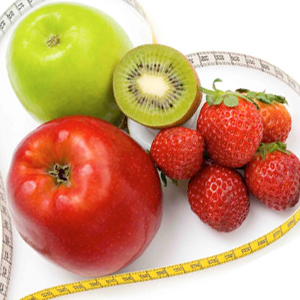
DASH is very similar to Mediterranean diet with similar foods. This dietary protocol has a great research record associated with reduced risk of cardiovascular disease, diabetes, neurodegenerative disease, lower blood pressure, and lower rates of malignancies. Restricting consumption of alcoholic beverages in both men and women effectively reduces blood pressure.
Weight loss helps to reduce blood pressure by about 5-20 mm Hg, especially in population under 60 years of age.
Regular exercise helps with an average reductions in blood pressure. Even taking small steps such as avoiding prolonged sitting combined with light intensity walking is shown to help lowering blood pressure.
Acute stress can cause short time blood pressure spikes. Stress response contributes to release of the stress hormones from adrenal glands, which increases heart rate , constricts blood vessel, and raises blood pressure. It is shown that individuals with stronger responses to acute psychological stress are 21% more likely to develop hypertension. Effectively stress management helps improving blood pressure and overall health.
Inflammation and the use of non steroidal anti-inflammatories (NSAIDs) are shown to increase blood pressure in people with tendency to hypertension, and increased risk of developing chronic kidney conditions.
Which Natural Products Can Help to Improve Hypertension (High blood Pressure)?
Coenzyme Q10 helps improve endothelial function which is a concern especially for those treated for high cholesterol, diabetes, and high blood pressure. CoQ10 may also contribute to nitrogen oxide production which promotes vasodilatation. Blood pressure lowering effects of CoQ10 is supported by controlled trails.
Grape seed extract is a rich source of grape polyphenols contributing to improve endothelial function in both healthy subjects and in those at high cardiovascular risk. Improving endothelial function effectively lowers both systolic and diastolic blood pressure. This improvement was almost double in those with the highest blood pressure. Grape seed extract also helps improve glucose levels. Clinical trials suggest the improvement are detectable within 30‒60 minutes after ingestion.
A randomized clinical study compared the blood-pressure-lowering effects of olive leaf extract with a commonly prescribed antihypertensive in patients with stage 1 hypertension. Both groups experienced reductions in systolic and diastolic pressure, with no significant difference in the effects of the two compounds. The Olive leaf’s antihypertensive mechanism of action is found to be similar to prescriptions.
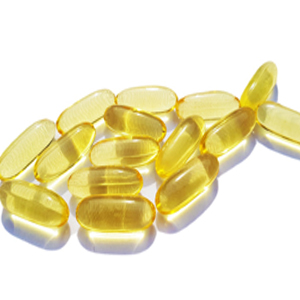
Omega-3 fatty acids are considered highly important cardio protective nutrients. Higher omega 3 intake helps lowering the inflammatory markers, bad cholesterol, blood pressure, and triglycerides. It helps to improve cell membranes and signalling across cell membranes. Comprehensive number of studies and research suggest taking about 3-4 g of EPA and DHA combined daily helps lowering both systolic and diastolic blood pressure in individuals with high blood pressure, as well as for those without hypertension at 2 g daily.
Epidemiology data shows those with high blood pressure have lower intakes of magnesium than those with normal blood pressure. Low magnesium intake is associated with greater risk of heart disease and declined kidney function. Magnesium improves endothelial function, naturally it is a calcium channel blocker and a vasodilator. Taking 500 -1000 mg of magnesium daily contributes to lower systolic and diastolic blood pressure. In addition, magnesium may help improve the function of the antihypertensives.
Melatonin is well-known and widely used as a natural sleep aid. Melatonin is naturally released from pineal gland at night to promote restful sleep and help regulate circadian (day-night) body rhythms. In addition, melatonin acts on the central and peripheral nervous system. Peripherally, melatonin helps relax blood vessels and promote vasodilatation, which reduces blood pressure. Melatonin participate in down regulating over stimulation of sympathetic nervous system, which is identified as a contributor to high blood pressure. Melatonin helps stabilize nocturnal hypertension. 2‒3 mg of slow release melatonin at bedtime helps reduce both nocturnal systolic and diastolic blood pressure.
Amino Acid L-arginine is an excellent vasodilator which is shown to help lowering both systolic and diastolic blood pressure when taken in dosages ranging from 4 to 24 g per day.
Hawthorn extract contributes to several cardiovascular benefits. Hawthorn has long been used in herbal medicine with many supportive studies for its beneficial effects on heart conditions such as mild heart failure, hypertension, and elevated blood lipids.
Quercetin belongs to flavonoid group responsible for plant pigments and it is found in many fruits and vegetables. Quercetin supplementation helps reduce cardiovascular disease, supported by both human and animal research. Quercetin helps reducing blood pressure via different mechanisms, one of which is thought to be acting as an angiotensin receptor blocker.
How To Safely Control Blood Pressure?
Hypertensive conditions such as an extreme and sudden increase in blood pressure can lead to a stroke and/or damage to other organs. Any blood pressure reading of 180/120 mm Hg or higher is considered dangerous and must seek immediate medical attention and would require medical treatment. Dietary changes and taking supplements are considered only after blood pressure has become under control. Combination of natural supplements with other antihypertensive prescriptions should be employed only as per advise and under care of a healthcare practitioner.
It is important to know your blood pressure numbers and it is even more important to keep it controlled. Even a small increase in blood pressure contributes to a great change in quality of life and life expectancy. Identify the underlying causes such as; hormonal imbalance, thyroid and adrenal conditions, weight gain, stress, sleep disorders, and high sodium diet. Once underlying causes are corrected, the blood pressure would normalize too.
Articles and products featured by Health Palace are collected from a variety of sources and are provided as a service by Health Palace. These newsletters, while of potential interest to readers, do not necessarily represent the opinions nor constitute the advice of Health Palace. Presented materials are only for information purposes and do not intent to treat, cure, or prevent any disease.
Related Articles:
Key Factors For Successful Weight Loss
How To Maintain & Improve Healthy Kidney Function.
How to Maintain and Restore Healthy Blood Lipids Level
What is Homocysteine & How Is It Related to Cardiovascular Disease
Key Steps to De-stress and Improve Your Energy and Focus
References:
1.Pins JJ, Keenan JM. Effects of whey peptides on cardiovascular disease risk factors. Journal of clinical hypertension (Greenwich, Conn.). Nov 2006;8(11):775-782.
2.Whelton PK, Carey RM, Aronow WS, Casey DE, Collins KJ, Dennison Himmelfarb C, . . . Wright JT. 2017 ACC/AHA/AAPA/ABC/ACPM/AGS/APhA/ASH/ASPC/NMA/PCNA Guideline for the Prevention, Detection, Evaluation, and Management of High Blood Pressure in Adults. A Report of the American College of Cardiology/American Heart Association Task Force on Clinical Practice Guidelines. 2017.
3.Lewington S, Clarke R, Qizilbash N, Peto R, Collins R. Age-specific relevance of usual blood pressure to vascular mortality: a meta-analysis of individual data for one million adults in 61 prospective studies. Lancet. Dec 14 2002;360(9349):1903-1913.
4. Gasperin D, Netuveli G, Dias-da-Costa JS, Pattussi MP. Effect of psychological stress on blood pressure increase: a meta-analysis of cohort studies. Cadernos de saude publica. Apr 2009;25(4):715-726.
5.Hughes JW, Fresco DM, Myerscough R, van Dulmen MH, Carlson LE, Josephson R. Randomized controlled trial of mindfulness-based stress reduction for prehypertension. Psychosomatic medicine. Oct 2013;75(8):721-728.
6.Hsu CC, Wang H, Hsu YH, et al. Use of Non-steroidal Anti-Inflammatory products and Risk of Chronic Kidney Disease in Subjects With Hypertension: Nationwide Longitudinal Cohort Study. Hypertension. Sep 2015;66(3):524-533.
7.Aljadhey H, Tu W, Hansen RA, Blalock SJ, Brater DC, Murray MD. Comparative effects of non-steroidal anti-inflammatory products on blood pressure in patients with hypertension. BMC cardiovascular disorders. 2012;12:93.
8.Kelley GA, Kelley KS. Progressive resistance exercise and resting blood pressure : A meta-analysis of randomized controlled trials. Hypertension. Mar 2000;35(3):838-843.
9.Larsen RN, Kingwell BA, Sethi P, Cerin E, Owen N, Dunstan DW. Breaking up prolonged sitting reduces resting blood pressure in overweight/obese adults. Nutrition, metabolism, and cardiovascular diseases : NMCD. Sep 2014;24(9):976-982.
10.Whelton SP, Chin A, Xin X, He J. Effect of aerobic exercise on blood pressure: a meta-analysis of randomized, controlled trials. Ann Intern Med. Apr 2 2002;136(7):493-503.
11.Stevens VJ, Obarzanek E, Cook NR, et al. Long-term weight loss and changes in blood pressure: results of the Trials of Hypertension Prevention, phase II. Ann Intern Med. Jan 2 2001;134(1):1-11.
12.Perez V, Chang ET. Sodium-to-potassium ratio and blood pressure, hypertension, and related factors. Advances in nutrition (Bethesda, Md.). Nov 2014;5(6):712-741.
13.Riegel G, Moreira LB, Fuchs SC, et al. Long-term effectiveness of non-medicine recommendations to treat hypertension in a clinical setting. American journal of hypertension. Nov 2012;25(11):1202-1208.
14.Lourida I, Soni M, Thompson-Coon J, et al. Mediterranean diet, cognitive function, and dementia: a systematic review. Epidemiology (Cambridge, Mass.). Jul 2013;24(4):479-489.
15.Tognon G, Lissner L, Saebye D, Walker KZ, Heitmann BL. The Mediterranean diet in relation to mortality and CVD: a Danish cohort study. The British journal of nutrition. Jan 14 2014;111(1):151-159.
16.Hinderliter AL, Sherwood A, Craighead LW, et al. The long-term effects of lifestyle change on blood pressure: One-year follow-up of the ENCORE study. American journal of hypertension. May 2014;27(5):734-741.
17.Sacks FM, Svetkey LP, Vollmer WM, et al. Effects on blood pressure of reduced dietary sodium and the Dietary Approaches to Stop Hypertension (DASH) diet. DASH-Sodium Collaborative Research Group. The New England journal of medicine. Jan 4 2001;344(1):3-10.
18.Streppel MT, Arends LR, van 't Veer P, Grobbee DE, Geleijnse JM. Dietary fiber and blood pressure: a meta-analysis of randomized placebo-controlled trials. Archives of internal medicine. Jan 24 2005;165(2):150-156.
19.Appel LJ, Moore TJ, Obarzanek E, et al. A clinical trial of the effects of dietary patterns on blood pressure. DASH Collaborative Research Group. The New England journal of medicine. Apr 17 1997;336(16):1117-1124.
20.Odden MC, Shlipak MG, Whitson HE, et al. Risk factors for cardiovascular disease across the spectrum of older age: the Cardiovascular Health Study. Atherosclerosis. Nov 2014;237(1):336-342.
21.Brunström M, Carlberg B. Effect of antihypertensive treatment at different blood pressure levels in patients with diabetes mellitus: systematic review and meta-analyses. BMJ (Clinical research ed.). 2016-02-25 00:06:06 2016;352.
22.Sikand G. Mediterranean, DASH & TLC Dietary Patterns: Mechanisms for CVD Reduction. Paper presented at: 2014 Clinical Lipid Update; March 16th 2014, 2014; Maui.
23.Calderone V, Chericoni S, Martinelli C, Testai L, Nardi A, Morelli I, . . . Martinotti E. Vasorelaxing effects of flavonoids: investigation on the possible involvement of potassium channels. Naunyn-Schmiedeberg's archives of pharmacology. Oct 2004;370(4):290-298.
24.Benavente-Garcia O, Castillo J. Update on uses and properties of citrus flavonoids: new findings in anticancer, cardiovascular, and anti-inflammatory activity. J Agric Food Chem. Aug 13 2008;56(15):6185-6205.
25.Houston M. The role of nutrition and nutraceutical supplements in the treatment of hypertension. World journal of cardiology. 2014;6(2):38-66.
26.Mortensen SA, Rosenfeldt F, Kumar A, et al. The Effect of Coenzyme Q on Morbidity and Mortality in Chronic Heart Failure: Results From Q-SYMBIO: A Randomized Double-Blind Trial. JACC. Heart failure. Sep 25 2014.
27.Alehagen U, Johansson P, Björnstedt M, Rosén A, Dahlström U. Cardiovascular mortality and N-terminal-proBNP reduced after combined selenium and coenzyme Q10 supplementation: A 5-year prospective randomized double-blind placebo-controlled trial among elderly Swedish citizens. International journal of cardiology. 9/1/ 2013;167(5):1860-1866.
28.Ho MJ, Bellusci A, Wright JM. Blood pressure lowering efficacy of coenzyme Q10 for primary hypertension. The Cochrane database of systematic reviews. 2009(4):Cd007435.
29.Nestel P, Clifton P, Colquhoun D, et al. Indications for Omega-3 Long Chain Polyunsaturated Fatty Acid in the Prevention and Treatment of Cardiovascular Disease. Heart, lung & circulation. Aug 2015;24(8):769-779.
30.Jain AP, Aggarwal KK, Zhang PY. Omega-3 fatty acids and cardiovascular disease. European review for medical and pharmacological sciences. 2015;19(3):441-445.
31.Endo J, Arita M. Cardioprotective mechanism of omega-3 polyunsaturated fatty acids. Journal of cardiology. Sep 7 2015.
32.Geleijnse JM, Giltay EJ, Grobbee DE, Donders AR, Kok FJ. Blood pressure response to fish oil supplementation: metaregression analysis of randomized trials. Journal of hypertension. Aug 2002;20(8):1493-1499.
33.Gao L, Mao Q, Cao J, Wang Y, Zhou X, Fan L. Effects of coenzyme Q10 on vascular endothelial function in humans: a meta-analysis of randomized controlled trials. Atherosclerosis. Apr 2012;221(2):311-316.
34.Kedziora-Kornatowska K, Czuczejko J, Motyl J, et al. Effects of coenzyme Q10 supplementation on activities of selected antioxidative enzymes and lipid peroxidation in hypertensive patients treated with indapamide. A pilot study. Archives of medical science : AMS. Aug 30 2010;6(4):513-518.
35.Hamilton SJ, Chew GT, Watts GF. Coenzyme Q10 Improves Endothelial Dysfunction in Statin-Treated Type 2 Diabetic Patients. Diabetes care. May 1, 2009 2009;32(5):810-812.
36.Wang J, Xiong X, Feng B. Effect of crataegus usage in cardiovascular disease prevention: an evidence-based approach. Evidence-based complementary and alternative medicine : eCAM. 2013;2013:149363
37.Dong JY, Qin LQ, Zhang Z, et al. Effect of oral L-arginine supplementation on blood pressure: a meta-analysis of randomized, double-blind, placebo-controlled trials. American heart journal. Dec 2011;162(6):959-965.
38.Houston M. Magnesium and Hypertension. In: Watson RR, Preedy VR, Zibadi S, eds. Magnesium in Human Health and Disease: Humana Press; 2013:183-189.
39.Shechter M, Shechter A. The Role of Magnesium in the Cardiovascular System. In: Watson RR, Preedy VR, Zibadi S, eds. Magnesium in Human Health and Disease: Humana Press; 2013:191-204.
40.Witkowski M, Hubert J, Mazur A. Methods of assessment of magnesium status in humans: a systematic review. Magnesium research : official organ of the International Society for the Development of Research on Magnesium. Dec 2011;24(4):163-180.
41.Tin A, Grams ME, Maruthur NM, et al. Results from the Atherosclerosis Risk in Communities study suggest that low serum magnesium is associated with incident kidney disease. Kidney international. 04//print 2015;87(4):820-827.
42.Jee SH, Miller ER, 3rd, Guallar E, Singh VK, Appel LJ, Klag MJ. The effect of magnesium supplementation on blood pressure: a meta-analysis of randomized clinical trials. American journal of hypertension. Aug 2002;15(8):691-696.
43.Rosanoff A, Plesset MR. Oral magnesium supplements decrease high blood pressure (SBP>155 mmHg) in hypertensive subjects on anti-hypertensive medications: a targeted meta-analysis. Magnesium research : official organ of the International Society for the Development of Research on Magnesium. Jul-Sep 2013;26(3):93-99.
44.Grober U, Schmidt J, Kisters K. Magnesium in Prevention and Therapy. Nutrients. 2015;7(9):8199-8226.
45.Rosanoff A. Magnesium supplements may enhance the effect of antihypertensive medications in stage 1 hypertensive subjects. Magnesium research : official organ of the International Society for the Development of Research on Magnesium. Mar 2010;23(1):27-40.
46.Qu X, Jin F, Hao Y, et al. Magnesium and the risk of cardiovascular events: a meta-analysis of prospective cohort studies. PloS one. 2013;8(3):e57720.
47.Parzonko A, Czerwinska ME, Kiss AK, Naruszewicz M. Oleuropein and oleacein may restore biological functions of endothelial progenitor cells impaired by angiotensin II via activation of Nrf2/heme oxygenase-1 pathway. Phytomedicine : international journal of phytotherapy and phytopharmacology. Sep 15 2013;20(12):1088-1094.
48.Gilani AH, Khan AU, Shah AJ, Connor J, Jabeen Q. Blood pressure lowering effect of olive is mediated through calcium channel blockade. International journal of food sciences and nutrition. Dec 2005;56(8):613-620.
49.Scheffler A, Rauwald HW, Kampa B, Mann U, Mohr FW, Dhein S. Olea europaea leaf extract exerts L-type Ca(2+) channel antagonistic effects. Journal of ethnopharmacology. Nov 20 2008;120(2):233-240.
50.de Bock M, Derraik JG, Brennan CM, et al. Olive (Olea europaea L.) leaf polyphenols improve insulin sensitivity in middle-aged overweight men: a randomized, placebo-controlled, crossover trial. PloS one. 2013;8(3):e57622.
51.Perrinjaquet-Moccetti T, Busjahn A, Schmidlin C, Schmidt A, Bradl B, Aydogan C. Food supplementation with an olive (Olea europaea L.) leaf extract reduces blood pressure in borderline hypertensive monozygotic twins. Phytotherapy research : PTR. Sep 2008;22(9):1239-1242.
52.Susalit E, Agus N, Effendi I, et al. Olive (Olea europaea) leaf extract effective in patients with stage-1 hypertension: comparison with antihypertensive. Phytomedicine : international journal of phytotherapy and phytopharmacology. Feb 15 2011;18(4):251-258.
53.Park E, Edirisinghe I, Choy YY, Waterhouse A, Burton-Freeman B. Effects of grape seed extract beverage on blood pressure and metabolic indices in individuals with pre-hypertension: a randomised, double-blinded, two-arm, parallel, placebo-controlled trial. The British journal of nutrition. Nov 16 2015:1-13.
54.Edirisinghe I, Burton-Freeman B, Tissa Kappagoda C. Mechanism of the endothelium-dependent relaxation evoked by a grape seed extract. Clinical science (London, England : 1979). Feb 2008;114(4):331-337.
55.Li SH, Zhao P, Tian HB, Chen LH, Cui LQ. Effect of Grape Polyphenols on Blood Pressure: A Meta-Analysis of Randomized Controlled Trials. PloS one. 2015;10(9):e0137665.
56.Li SH, Tian HB, Zhao HJ, Chen LH, Cui LQ. The acute effects of grape polyphenols supplementation on endothelial function in adults: meta-analyses of controlled trials. PloS one. 2013;8(7):e69818.
57.Grossman E, Laudon M, Zisapel N. Effect of melatonin on nocturnal blood pressure: meta-analysis of randomized controlled trials. Vasc Health Risk Manag. 2011;7:577-584.
58.Rodella LF, Favero G, Foglio E, et al. Vascular endothelial cells and dysfunctions: role of melatonin. Frontiers in bioscience (Elite edition). 2013;5:119-129.
59.Pechanova O, Paulis L, Simko F. Peripheral and Central Effects of Melatonin on Blood Pressure Regulation. International journal of molecular sciences. 10/08 07/03/received 09/17/revised 09/17/accepted 2014;15(10):17920-17937.
60.Altun A, Ugur-Altun B. Melatonin: therapeutic and clinical utilization. International journal of clinical practice. May 2007;61(5):835-845.
61.Zahedi M, Ghiasvand R, Feizi A, Asgari G, Darvish L. Does Quercetin Improve Cardiovascular Risk factors and Inflammatory Biomarkers in Women with Type 2 Diabetes: A Double-blind Randomized Controlled Clinical Trial. International journal of preventive medicine. Jul 2013;4(7):777-785.
62.Edwards RL, Lyon T, Litwin SE, Rabovsky A, Symons JD, Jalili T. Quercetin reduces blood pressure in hypertensive subjects. The Journal of nutrition. Nov 2007;137(11):2405-2411.
63.Brull V, Burak C, Stoffel-Wagner B, et al. Effects of a quercetin-rich onion skin extract on 24 h ambulatory blood pressure and endothelial function in overweight-to-obese patients with (pre-)hypertension: a randomised double-blinded placebo-controlled cross-over trial. The British journal of nutrition. Oct 2015;114(8):1263-1277.
64.Pfeuffer M, Auinger A, Bley U, et al. Effect of quercetin on traits of the metabolic syndrome, endothelial function and inflammation in men with different APOE isoforms. Nutrition, metabolism, and cardiovascular diseases : NMCD. May 2013;23(5):403-409.
65.Larson AJ, Symons JD, Jalili T. Therapeutic potential of quercetin to decrease blood pressure: review of efficacy and mechanisms. Advances in nutrition (Bethesda, Md.). Jan 2012;3(1):39-46.
Recent Posts
-
Macular degeneration
Macular degeneration which is commonly known as age-related macular degeneration (AMD /ARMD), is a m …7th Sep 2025 -
Maintain A Healthy Heart Rhythm With Integrative Medicine
Maintain A Healthy Heart Rhythm With Integrative Medicine;Usually, abnormal heart rate or arrhythmi …4th Feb 2021 -
How to Prevent Gallstones from Forming? | Natural Supplements for Gallstones
How To Prevent Gallstone Formation?Gallstones are hard deposits made of cholesterol or bilirubin f …4th Mar 2020
